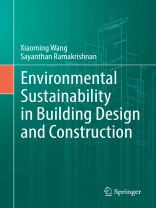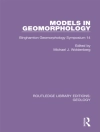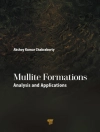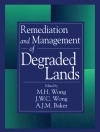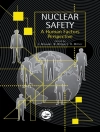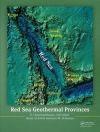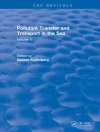This monograph offers analyses of construction activities using various key concepts and assessments of sustainable development, and provides students and researchers with methodologies and design aspects for the sustainable development of the built environment. Additionally, the book demonstrates various national and international policies for assisting architects, engineers and policy makers in understanding the relevant decision-making approaches to sustainable development in construction.
The book begins by reviewing the background of sustainability and sustainable development. The focus then turns to the effects of climate change on the built environment, including impacts of energy and carbon emissions, as well as constraints on water and waste management. The remaining chapters discuss the necessary approaches to achieve sustainable waste management, energy efficient building design, and resilience and adaptation in the built environment
In eight chapters, the book encourages readers to think independently, logically and objectively about the complex issues presented by the applications of sustainable development in construction, including resource efficiency, environmental impacts, human health, building economics and social development.
Inhaltsverzeichnis
Chapter 1-Introduction.- Chapter 2-National and international developments.- Chapter 3-Climate change and built environment.- Chapter 4-Energy and carbon emission.- Chapter 5-Materials and water.- Chapter 6-Sustainable waste management.- Chapter 7-Resilience and adaptation in buildings.- Chapter 8-Sustainable building design.- Chapter 9-Urban sustainable developments.- Chapter 10-Regional sustainable developments.
Über den Autor
Dr. Xiaoming Wang is a Professor with the Northwest Institute of Eco-Environment and Resources in the Chinese Academy of Science (CAS), and an adjunt Professor with the School of Engineering at Monash University and the Faculty of Science, Engineering and Technology at the Swinburne University of Technology. He has extensive experience working on climate impact and adaptation related projects of national significance, and was a contributing author to the Australasia chapter in the IPCC 5th Assessment Report of Climate Change (AR5), as well as a leading/contributing author of 2nd Assessment Report of Climate Change and Cities (ARC3-2). Dr. Wang has published about 270 journal and conference papers, book chapters, and technical reports with collaborations in broad international and national research networks. He is highly skilled in multi- and inter-disciplinary research, with broad knowledge and publications covering material science, mechanical and civil engineering, urban environment and sustainability, green cities and planning, public health, and climate adaptation.
Dr Saya Ramakrishnan is Australian Research Council (ARC) DECRA Research Fellow at the Swinburne University of Technology. He holds BSc Eng (Hons) Degree (First Class) from University of Moratuwa, Sri Lanka, and Ph D Degree from Swinburne University of Technology. Saya’s research is mainly focused on sustainable construction materials, smart construction methods and energy efficiency in buildings. He is also passionate about implementing research developments for industrial practice and has therefore established research partnerships with the industrial sector during his career. Saya has published many research articles in high impact journals during his Ph D and as the early career researcher.
